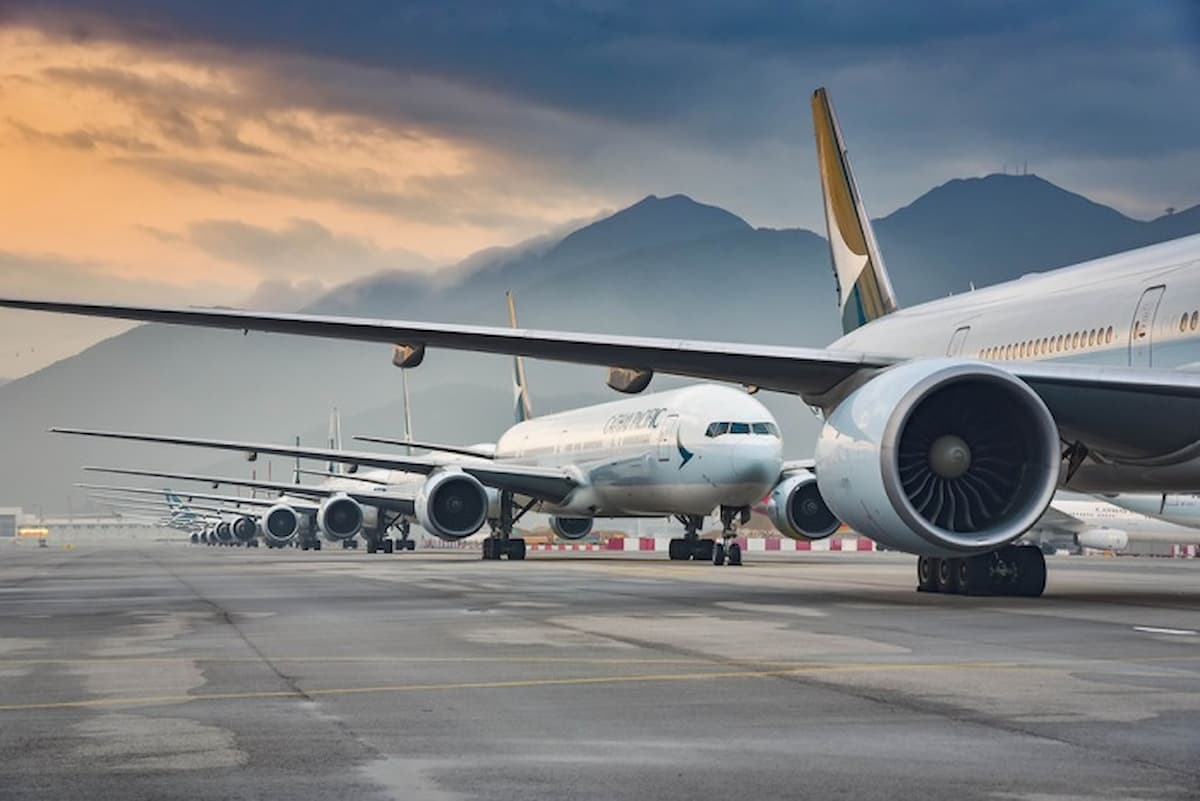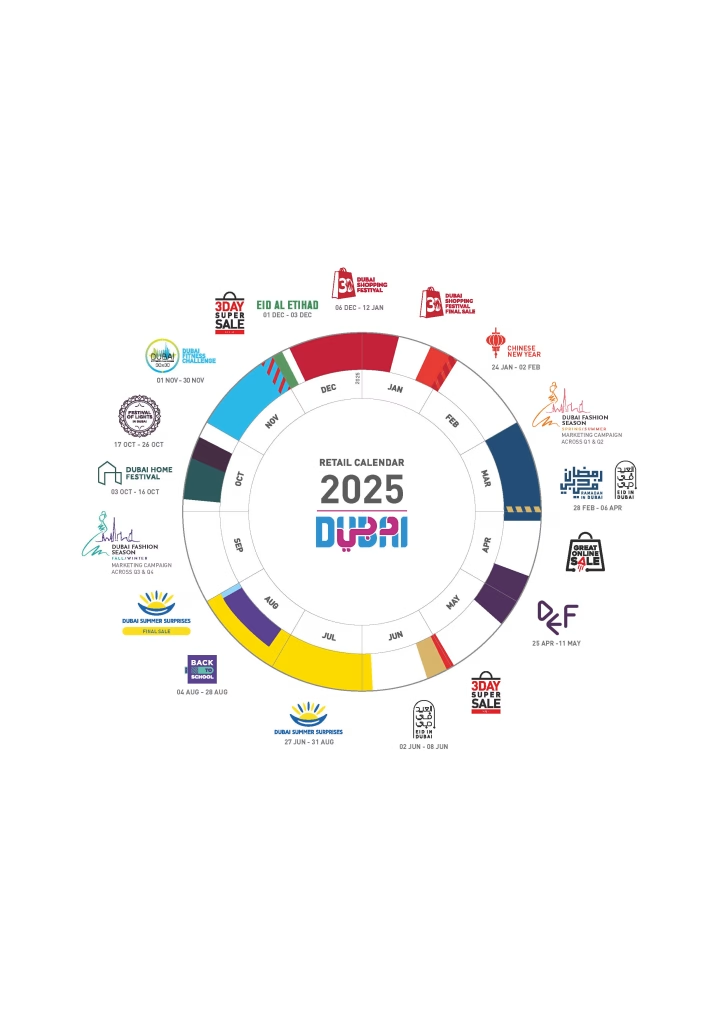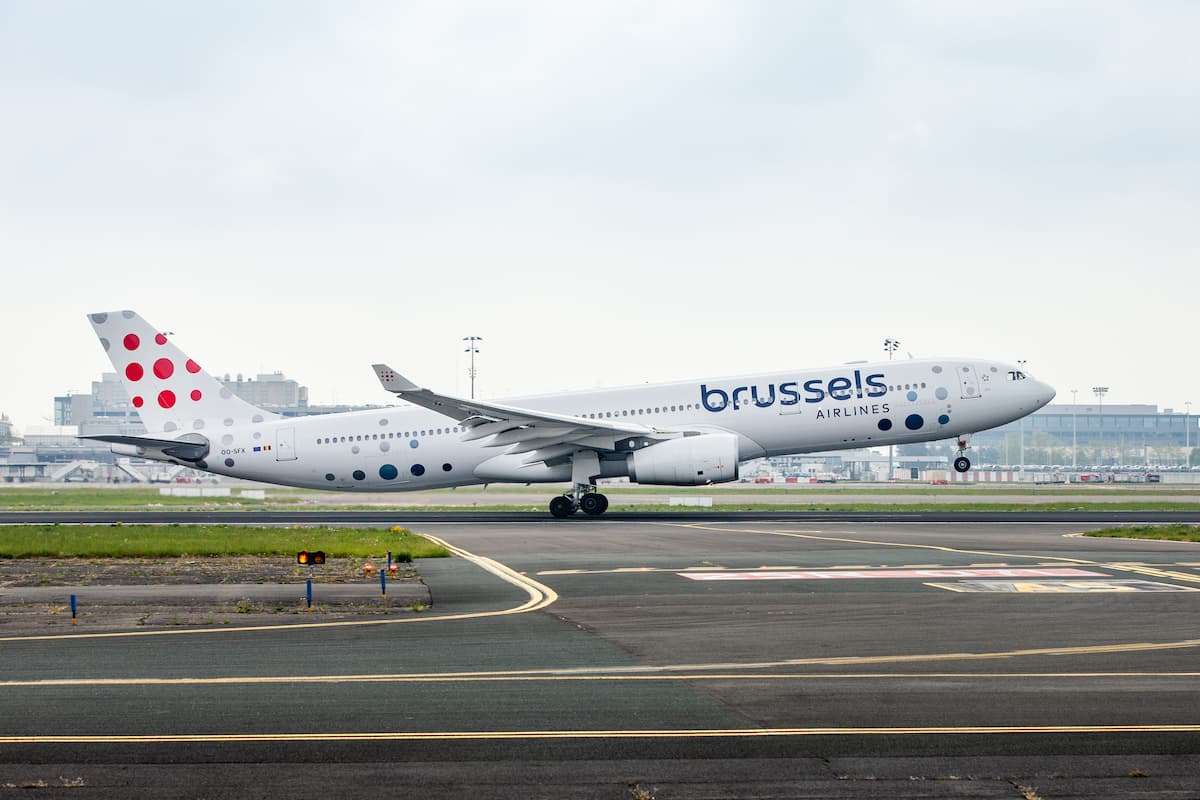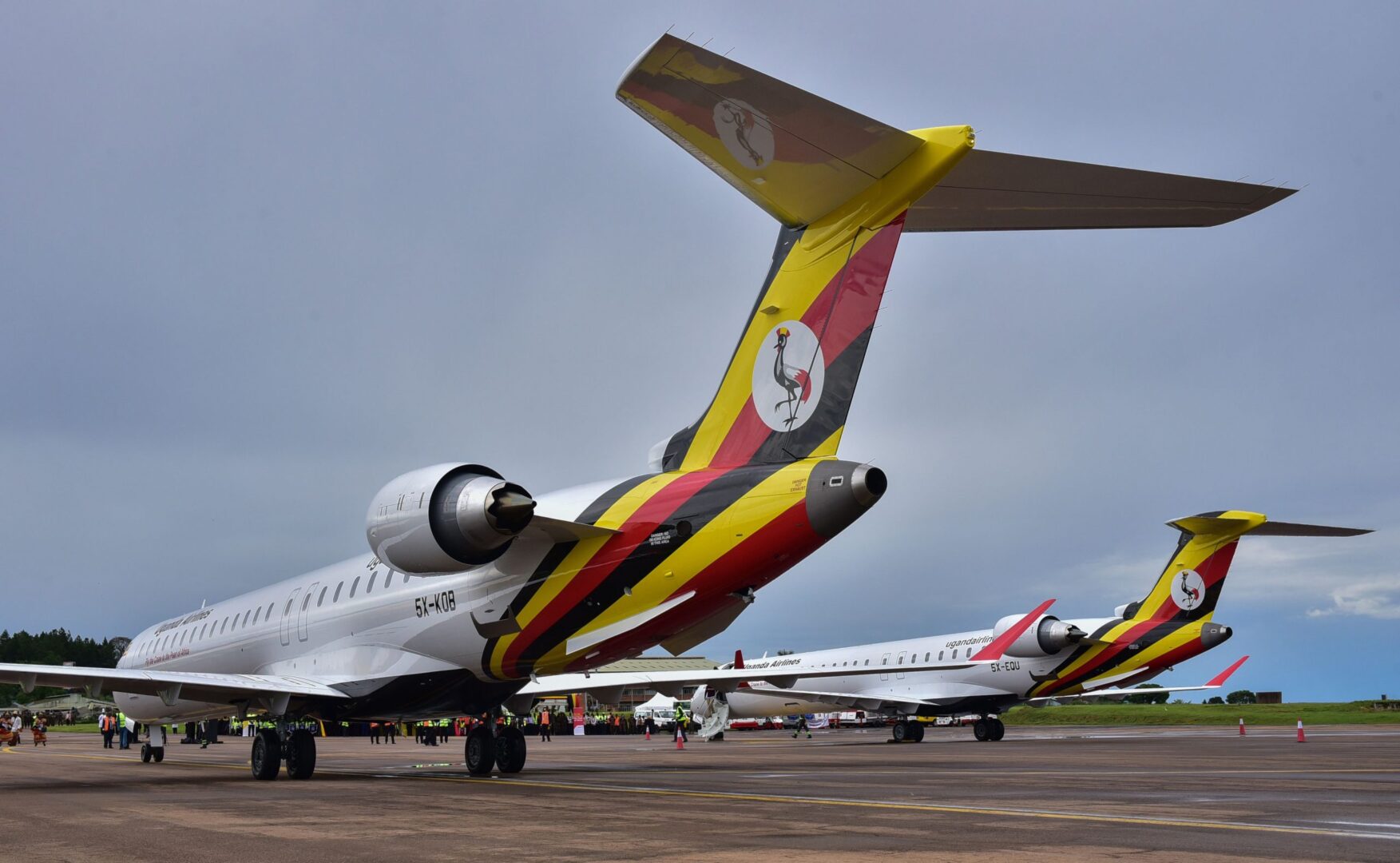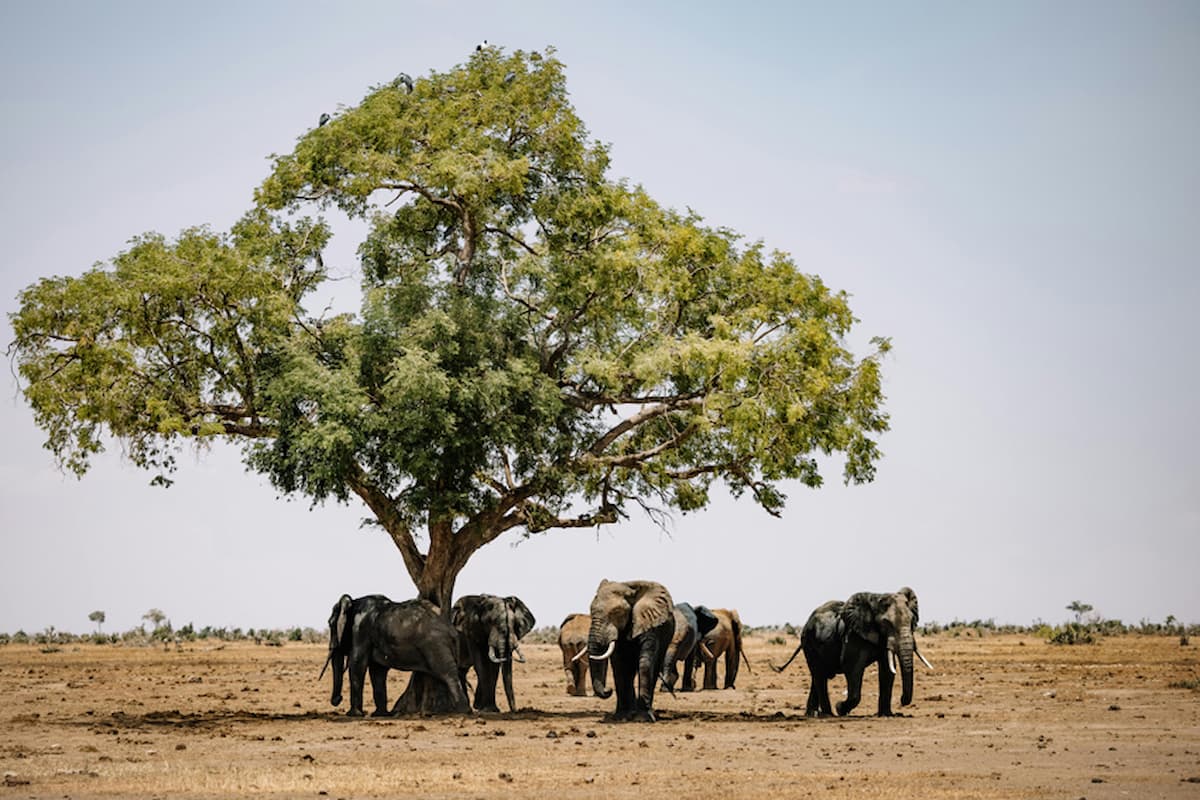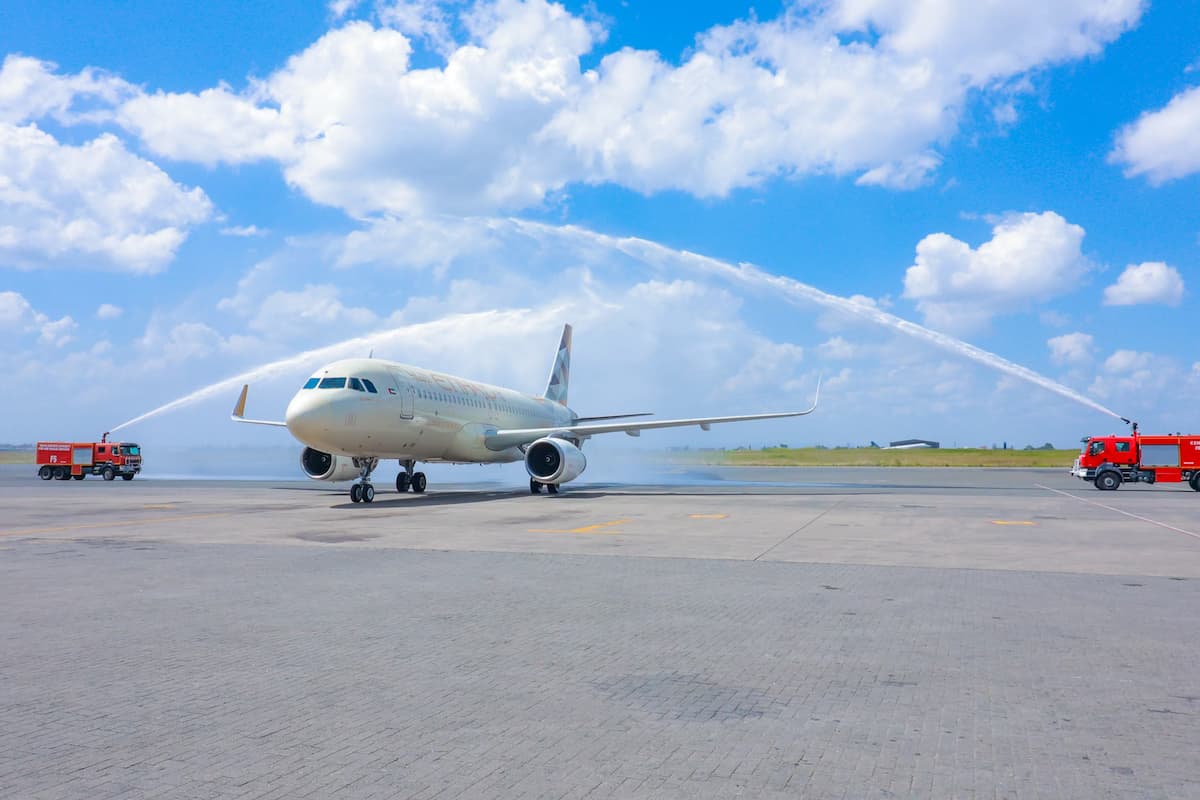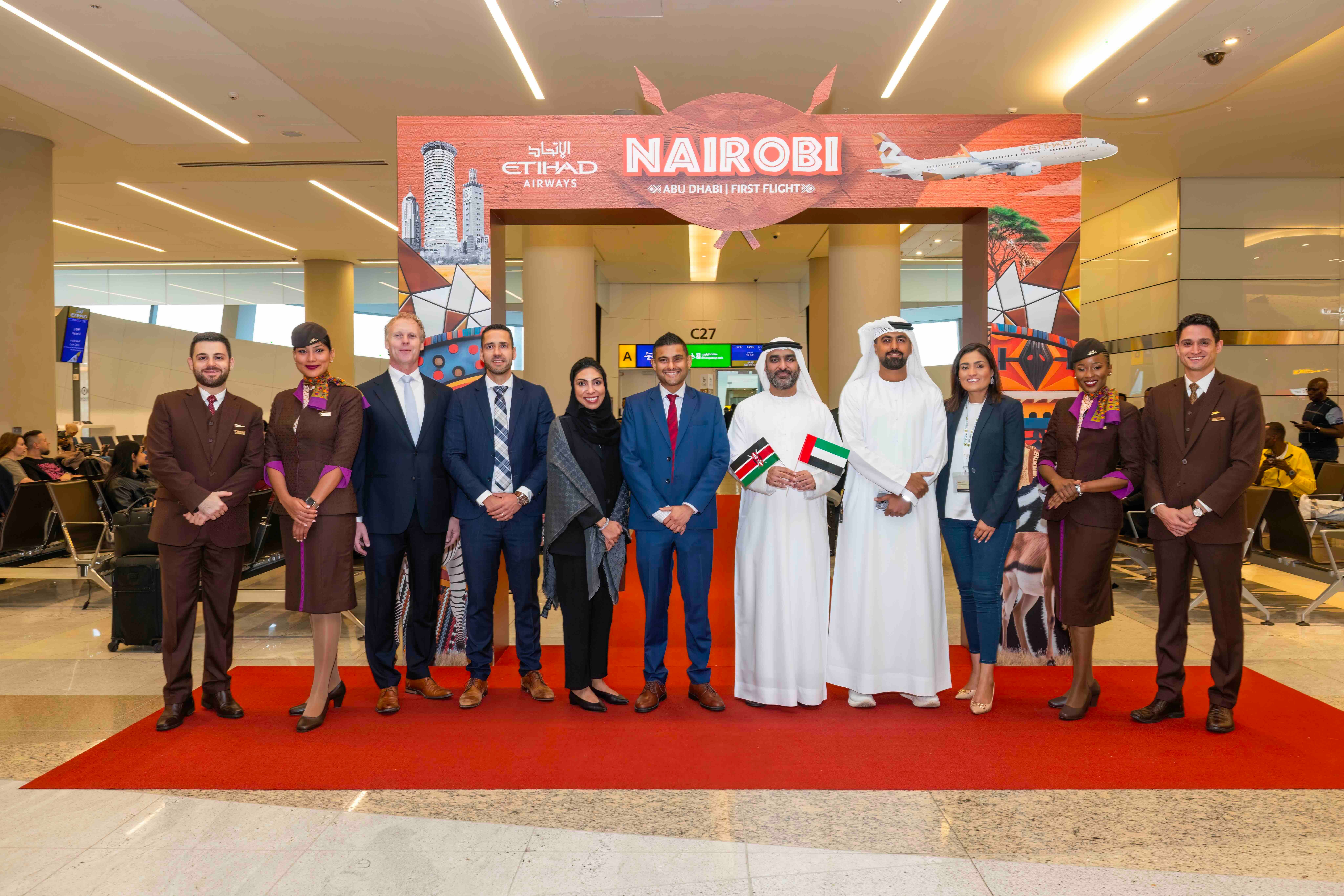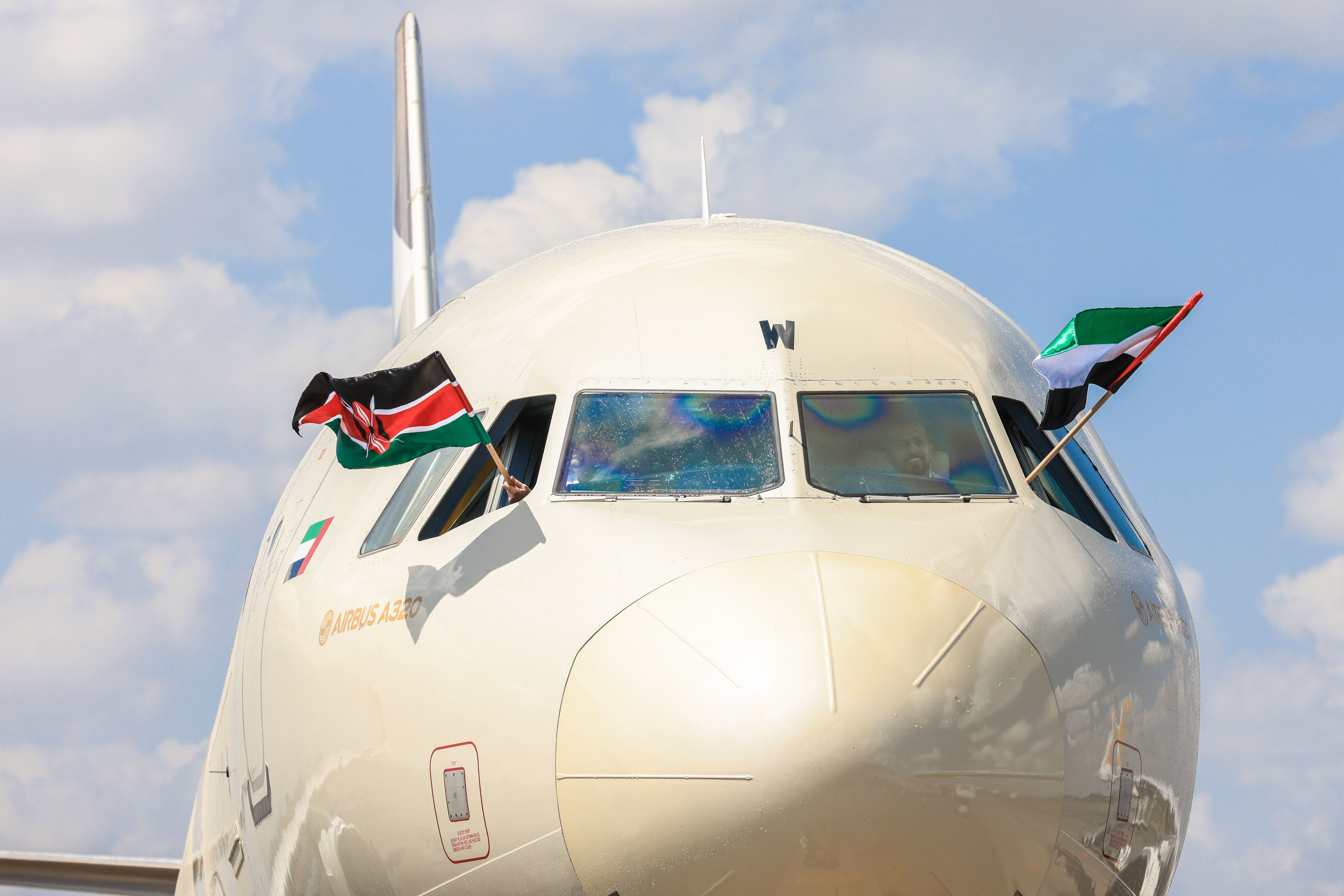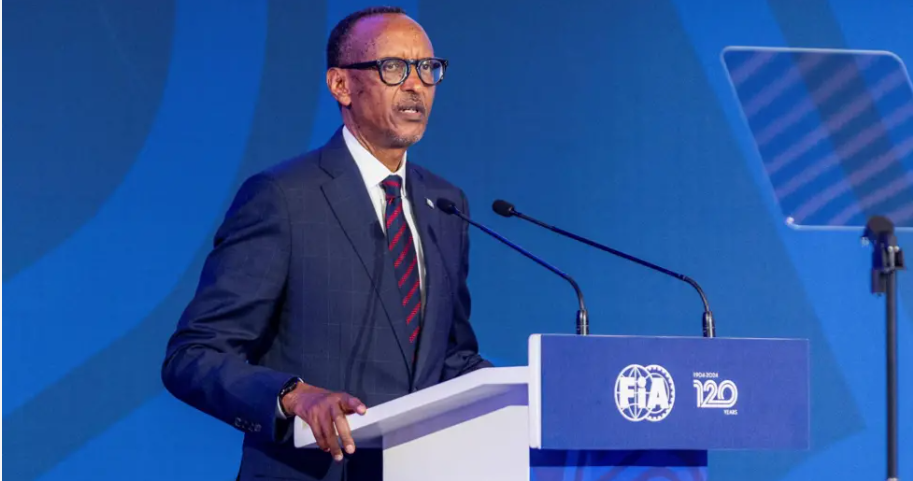Next year, there will be some changes when it comes to UK travel. The UK’s ETA is a digital requirement for visitors who do not need a visa for short stays. It is not a visa but an official “digital permission to travel.”
The system will apply first to travellers from countries like the United States, Canada, and Australia starting 8 January 2025. From 2 April 2025, EU nationals will also need an ETA before entering the UK.
This change introduces pre-travel checks to confirm that visitors are eligible to enter the country. It is designed to reduce delays and confusion when travellers arrive, particularly at border checks.
How Does The ETA Process Work?
It costs £10 for the application fee… Travellers must apply for an ETA either through an online form or the UK ETA app, and needs details such as passport information, personal data, and biometric details.
Most applications are processed from a few hours to about 3 business days. Once approved, the ETA will be valid for 2 years, or until the applicant’s passport expires, depending on which happens first. During this period, visitors can make multiple short trips to the UK, staying for up to 6 months at a time.
The ETA will be digitally linked to the traveller’s passport. Before departure, airline staff will confirm the status of an ETA, making check-in and boarding smoother for those who have already completed the process.
Why Is The ETA Being Introduced?
The ETA is modernising how visitors enter the UK. It allows for more advanced checks on travellers and confirms their details before they arrive in the country. Personal and biometric information collected during the application process will help authorities verify identities and prevent issues such as identity fraud.
This system is also expected to improve the overall experience at UK borders. Checking eligibility in advance can help with the long wait times, especially during peak travel seasons. Travellers will have way better entry processes that are reliable from next year, while border authorities can better manage the flow of people arriving.
The UK joins other countries and regions implementing similar systems. The European Union will introduce its ETIAS programme in 2025, which requires a similar online application and fee for short-term visitors.
Who Will Need An ETA, And Who Won’t?
Starting from 8 January 2025, visitors from non-European nations, including the US, Canada, and Australia, must obtain an ETA to enter the UK. These travellers account for millions of visitors every year and contribute heavily to the UK’s tourism sector.
From 2 April 2025, EU nationals will also need an ETA for short visits. Exemptions will apply to UK and Irish citizens, as well as travellers who already have valid UK visas or immigration statuses.
The government estimates millions of applications every year. Visitors from the US, Canada, and Australia contributed £8.8 billion to the UK economy in 2023. These countries are great contributions to the UK’s tourism and local businesses.
What Do Travellers Think About The ETA?
As much as the ETA intends on making travel processes smoother, some visitors have some worries. The new requirement and £10 fee could discourage younger or budget-conscious travellers. For those who travel often, there is also a worry about the loss of passport stamps, which many view as personal keepsakes.
Frequent travellers have also questioned the possibility of technical issues. If the system experiences glitches or delays, visitors could face unexpected problems when travelling.
TravelTech Expert Predictions
Digital entry requirements are becoming more common worldwide, and the UK’s ETA is now one of the places who will use these new technologies for travel. The introduction of the ETA next year is also an opportunity for TravelTech and travel companies to provide solutions as travellers seek convenience the more technology advances.
We’ve also asked experts what advancements we should expect to see from next year, and what they think the state of the industry will look like…
Andrew Bud, Founder and CEO, iProov

“The use of facial verification at border crossings will spread rapidly, speeding up passenger processing and enhancing security. Programs like Eurostar’s SmartCheck biometric system are already paving the way, allowing travellers to verify their identity with a simple glance or scan.
“Automated systems will optimise passenger flow, reduce congestion, and slash wait times while dramatically reducing the load on border officials. Privacy will be prioritised, with travellers opting in and data protected by decentralised identity technologies. This shift will usher in a new era of seamless and secure travel, making it easier for people to connect and explore the world with confidence.”
Ben Simmons, VP and Regional Head of Europe and Africa, IBS Software

“Imagine boarding a transatlantic flight and your favourite drink is ready and served, at check-in you bought comfortable lounge access during your transfer, your taxi at your destination knows you are on time and your hotel has held your room, knowing you will be checking in late.
“And, if anything unexpected happens along the way, your entire journey is serviced, not just your flight, with you left to pick up the pieces. Many of the world’s biggest airlines are ready to serve their customers in a more personal way, but preparing to do so isn’t easy on a bed of legacy technology. Airlines must approach modern airline retailing with the perspective of balancing long and short-term value.
“Balancing immediate value and long-term pay off with the upfront costs might mean an overhaul of legacy tech is worthwhile for new modern applications to be built on top of an updated technology stack. Alternatively, some airlines might opt to build further on their legacy technology to prioritise an early approach to retail, though this may cost them more later down the line. Regardless of the decision, understanding the levels of legacy technology, and how new retail applications will interact with the technology stacks is an essential beginning point on the retail journey.”
Nikita Longachev, Principle AI Engineer, Hospitable

“By 2025, short-term rental properties will feel less like simple holiday lets and more like intuitive, ever-present travel companions thanks to the advancement of AI. The days of waiting for a host’s reply or turning to the internet for recommendations will be replaced by smart, conversational systems that understand what guests need — even before anyone thinks to ask. Travellers will effortlessly arrange bookings, tweak room settings, and receive personalised suggestions on local hotspots, all through a natural, ongoing conversation with the property itself.
“For those managing these spaces, the benefits will be equally transformative. Instead of wrestling with search rankings, juggling maintenance schedules, or guessing which amenities might please incoming guests, hosts will gain a digital ally. AI will offer proactive recommendations on improving visibility, highlight areas in need of upkeep, and refine the on-site experience based on real-time feedback.
“This intelligence will go beyond typed words, interpreting images, videos, and even scanned receipts. Whether it’s suggesting enhancements after viewing a property walkthrough or neatly categorising expenses from a photo of a receipt, the technology will work quietly behind the scenes, making the entire operation feel more fluid and attentive.
“Rather than relying on fragmented tools or passive systems, properties will be dynamic, ever-learning environments that deliver truly personalised and frictionless experiences.”
George Toumbev, Chief Commercial Officer, NatWest Boxed

“The cost of living squeeze has put pressure on the travel industry to incentivise travellers with better value for money. This doesn’t just mean cheaper deals – it also includes more flexible payment options, as well as financial rewards and incentives.
“As a result, competition for travellers’ attention and trust will increase in 2025, as online travel operators (OTAs) boost their loyalty programmes and expand their payment options to attract bookings. While many players already offer split payment products like BNPL, we’ll also witness the rise of Save Now, Buy Later options that are more attractive to travellers who would prefer to save up for a large expense.
“Embedded finance will increasingly become the great leveller, allowing OTAs to compete against airlines and hotels with personalised financial offerings based on detailed customer data. By merging financial data with loyalty data, brands will deliver tailored offers, financing plans within the checkout process, and a better customer experience.”
Markus Feller, CEO, Like Magic

“A persistently tight labour market will continue to exert pressure across the hospitality sector throughout 2025. With research showing more people planning to travel over the coming 12 months, hotels of all sizes will face immense pressure to do more with less.
“To adapt, hoteliers will increasingly turn to automation to streamline tedious yet essential administrative tasks, reducing the need for human intervention. Hoteliers will also focus on automating key operational aspects, such as guest check-ins and housekeeping, while consolidating multiple systems into a single platform to optimise workflows.
“This will allow staff to focus on delivering the human touch that creates memorable stays. The industry will also embrace AI much more holistically, understanding that it has a part to play in every aspect of a hotel’s running. In doing so, this will untangle the complexity of connecting disparate data sources with cloud-based PMS systems.
“Profitability strategies are also evolving. While boosting revenue through upselling remains important, hoteliers will give greater thought to how tech and AI can be used to reduce costs without compromising on quality.
“Another key trend is the emergence of the ‘guest journey manager,’ a role dedicated to overseeing and monetising the entire guest experience. This reflects a broader shift in mindset within the industry, representing and understanding that guest satisfaction is a continuous journey, not a series of isolated interactions.
“Success in 2025 will depend on adaptability and a forward-thinking approach to technology. Hotels that successfully blend automation with personalised service, keeping the guest at the heart of their strategies, will be well-positioned to overcome workforce challenges and thrive in an increasingly competitive market.”
Ruth Whitehead, COO, eviivo

“Travel in 2025 will be less about ticking boxes and more about living stories, meaning independent and boutique hotels are poised to become the default choice for an increasing number of travellers seeking authentic and meaningful experiences. These properties offer something many of the big brands simply cannot — unique stays that create lasting connections and unforgettable memories.
“The next year will also likely mark a real sea change in how AI is deployed in the travel sector. For travellers, it’s going to become the ultimate concierge, micro-personalising journeys to reflect not just where they want to go, but also the values of an increasingly mindful and eco-conscious generation seeking more sustainable experiences. On the other side of the coin, we will see more property managers, airlines and travel agencies lean on predictive analytics to forecast demand, set dynamic prices and make better use of their budgets.
“The expectations of today’s tech-savvy travellers really are worlds apart from just a few years ago, and they continue to evolve rapidly. Three essentials are quickly becoming standard: contactless check-ins for added convenience, intuitive search functions that effortlessly connect travellers with their ideal room or service and seamless payment processes that make bookings hassle-free.
“With travellers favouring quieter, more mindful, hyperlocal retreats over crowded hotspots, accommodation providers must adapt or be left behind. And technology will be the driving force, enabling properties to deliver seamless personalisation, effortless functionality and genuinely meaningful hospitality.”
Michael McCartan, Vice President of EMEA, IDeaS

“Amid persistently high operating costs and rapid advancements in hospitality technology, the adoption of staffless services in hotels and serviced apartments will continue to gain momentum in 2025. From digital front desks and self-ordering systems to fully contactless self-service solutions, hotels are increasingly embracing seamless digital innovation to enhance guest experiences. This enables hoteliers to deliver personalized stays while optimizing operations and redeploying staff to focus on areas where human interaction adds the most value.”
“As the younger generation start to travel more, their preferences will continue to reshape the hospitality landscape. This socially-driven demographic seeks hotels that offer more than just a place to stay—they crave dynamic spaces that foster connection through in-house events, group activities, and curated experiences. To appeal to this market, hotels will need to rethink their marketing and communication strategies, tailoring them to align with this generation’s values. With purchasing decisions heavily influenced by social media trends and platforms like TikTok, it’s crucial for hotels to maintain a strong presence where these audiences interact. By embracing these shifts, hotels can position themselves as vibrant, engaging, and highly desirable destinations.”
“Hotels will increasingly partner with local suppliers to deliver not only a more sustainable offering but also a more authentic experience for travellers. This approach goes beyond simply sourcing local ingredients to localise a hotel’s food offering— but extends to incorporating locally crafted furniture, showcasing regional artwork, and fostering collaborations with nearby businesses like coffee shops and artisans. By incorporating local elements into their offering, hotels can create an authentic environment while supporting their communities and meeting the growing demand for meaningful, eco-conscious travel experiences.”
“Although cloud adoption has been a growing trend for years, 2025 will be a critical tipping point—any system not in the cloud risks becoming obsolete. For hoteliers still reliant on local networks, the time to switch is now. Cloud technology is no longer a luxury but an absolute necessity, offering scalability, resilience, and the ability to stay competitive in an increasingly digital-first industry.”
Craig Brightly, Global Director of Travel Sales, Trust Payments

“Payments technology needs to be at the forefront of minds for travellers experiences. Enabling the latest mobile payment options is an easy way for smaller merchants to speed
up the transaction process and increase customer satisfaction.
“For those in marketplaces, “tap on mobile, for example, provides security and encryption on par with EMV and is a low-maintenance and low-cost option for EMV-compliant platform, plus it enables more secure chip-base contact and contactless payments.
“Merchants will stand to benefit by offering travellers more control over their payment choices, allowing them greater ability to keep expenses within budget and offering security and peace of mind when they are enjoying their vacation.
“It’s important to create seamless checkout experiences to speed up the transaction process for customers on the go by accepting local payment methods and being ready for more off-season visitors. Merchants can capture more spend from cash-savvy international travellers by accepting at least one form of payment they carry and offering digitised payment experiences.”
Radha Vyas, CEO and Co-founder, Flash Pack

“By 2025, investment in travel tech is expected to focus on solutions that go beyond direct services, encompassing the entire travel journey. The industry will increasingly prioritise tools that enhance the broader travel experience, from advanced natural language search to leveraging zero-party data for hyper-personalised recommendations.
“These innovations won’t just improve convenience but will help to personalise itineraries, creating more meaningful and impactful travel experiences. For example, beyond trip planning, we foresee technology playing a significant role in cultivating community and building meaningful friendships among travellers.”
Paula Felstead, Chief Information Officer, HBX Group

“In tourism, generative AI (GenAI) and large language models (LLMs) are making a huge impact. GenAI excels in creating personalised content including bespoke itineraries, immersive destination marketing, and virtual experiences that inspire travellers before they book. Equally, LLMs like GPT-4 are transforming customer service, enabling chatbots and virtual assistants to handle complex queries with context-aware, aiming for human-like precision.
“In 2025, companies will refine their strategies to optimise the combination of artificial and human intelligence (HI). For example, designing a truly memorable trip often requires the kind of creativity, intuition, and empathy that only humans can provide. However, using AI frees up time for tourism professionals to work their magic.
“Additionally, it’s vital that AI models are trained to capture cultural nuances and reflect unique customer behaviours. This cannot be achieved without establishing a foundation of high-quality data to fuel AI models, so effective data management will be a priority for those wanting to create seamless guest experiences and maintain a competitive edge.”
Julian Hirst, EMEA Regional Director, Busbud.

“By 2025, the digitisation of ground transport will make sustainable travel easier, smarter, and more accessible.
“In Western Europe, online, connected ground travel is already the norm—travellers can book tickets, compare routes, and track their journeys from their phones. But in many parts of the world, much of the market is still offline. That’s where we’ll see the biggest change in 2025: the rollout of smarter, more integrated platforms that let users plan, book, and manage journeys in real time.
“AI will be central to this. It can process huge amounts of data, optimise routes, predict behaviour, personalise experiences, and improve efficiency—reducing delays and making travel simpler and better for everyone. The outcome? More people choosing sustainable options because they’re reliable, practical, convenient, and easy to use.
“As AI and smart infrastructure continue to evolve, we’re on the edge of a tipping point. Digital transformation will create a global transport system that’s more connected, resilient, and ready to tackle the challenges of climate change—while making sustainable travel the obvious choice for millions of people.”
Source: TechRound.


